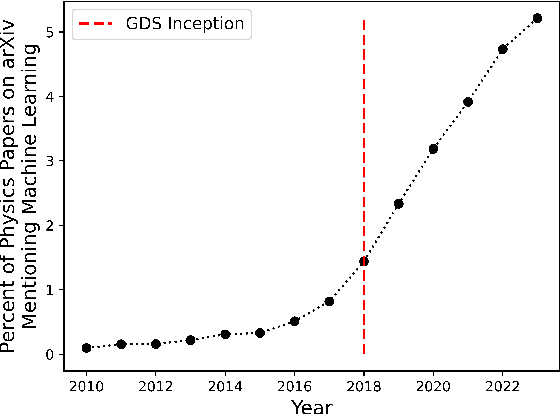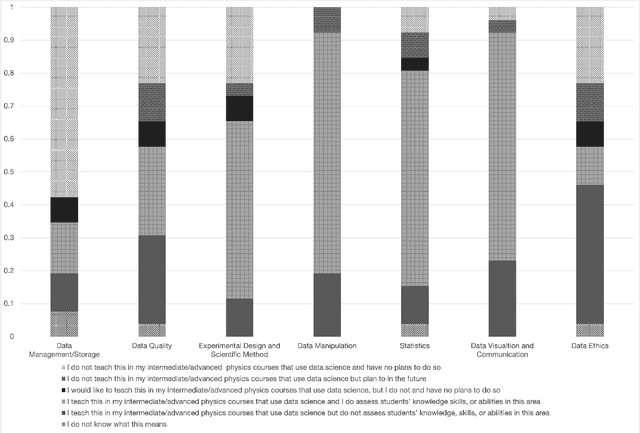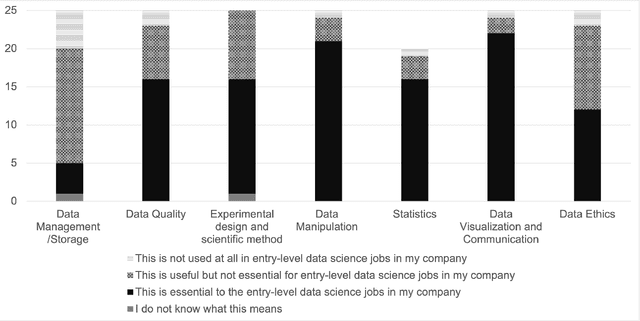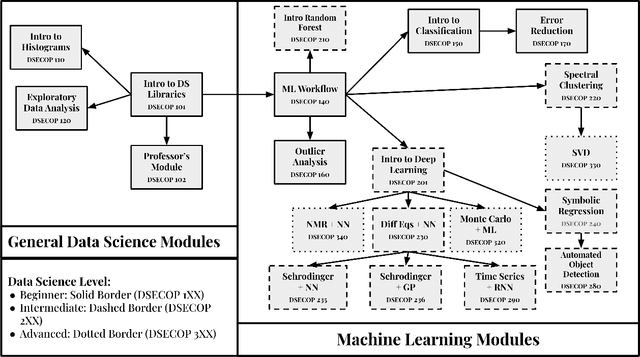Data Science Education in Undergraduate Physics: Lessons Learned from a Community of Practice
Paper and Code
Mar 01, 2024



With the increasing availability of diverse datasets, ranging from small-scale experimental data points to large and complex data repositories and powerful data analysis tools, it is increasingly important that physics educators equip their students with the skills to work with data effectively. However, many educators may lack the necessary training and expertise in data science to teach these skills. To address this gap, we created the Data Science Education Community of Practice (DSECOP), bringing together graduate students and physics educators from different institutions and backgrounds to share best practices and lessons learned in integrating data science into undergraduate physics education. In this article, we present insights and experiences from this community of practice, highlighting key strategies and challenges in incorporating data science into the introductory physics curriculum. Our goal is to provide guidance and inspiration to educators who seek to integrate data science into their teaching, helping to prepare the next generation of physicists for a data-driven world.
 Add to Chrome
Add to Chrome Add to Firefox
Add to Firefox Add to Edge
Add to Edge